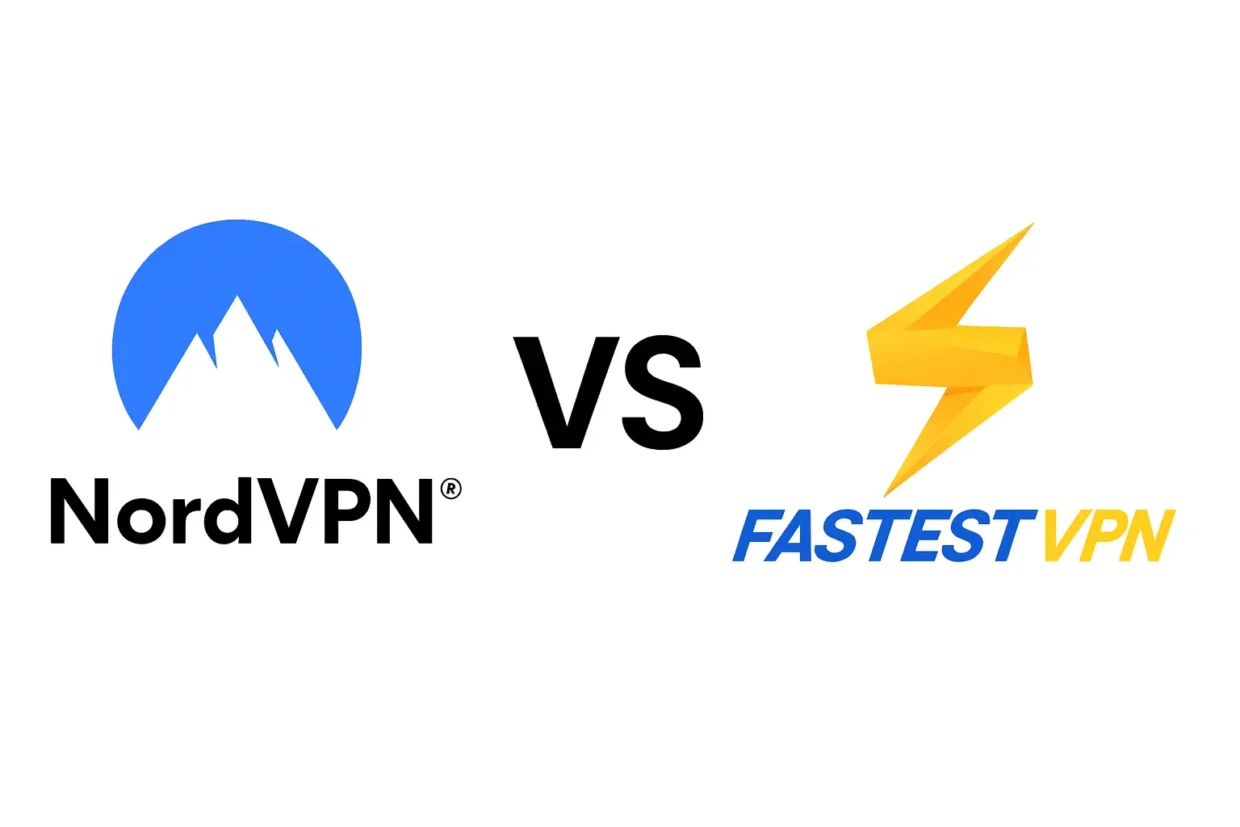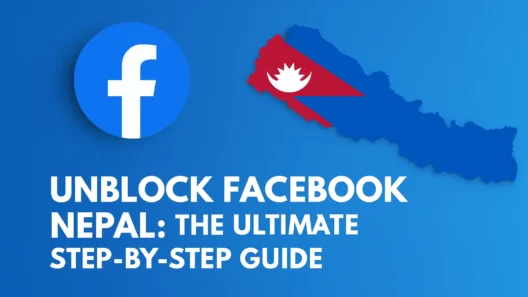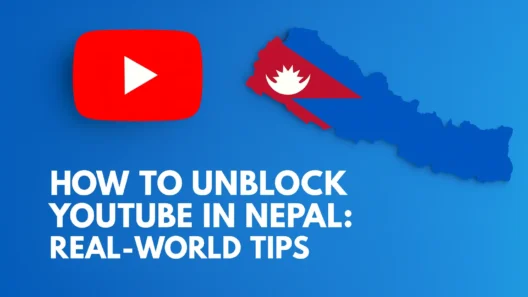If there’s one thing I’ve learned after years of hands-on VPN testing, it’s this: not all virtual private networks are created equal. Some make big promises but fall short when it comes to real-life usage, while others quietly become the backbone of your digital life—keeping you private, letting you stream anything, and (sometimes) saving your sanity on sketchy Wi-Fi. So, what happens when you put one of the most famous names in the business, NordVPN, up against the budget sensation FastestVPN?
You’re about to get a no-nonsense, ultra-detailed breakdown. Forget paid rankings and recycled “top 5” lists. This review digs deep—from raw speed and server reliability to privacy, streaming, app design, and the unspoken question: Is a $40 lifetime VPN a bargain, or a ticking time bomb?
Comparison Table: NordVPN vs FastestVPN
| Parameter | NordVPN | FastestVPN | Winner |
|---|---|---|---|
| Overall Rating | 9.7/10 | 7.4/10 | NordVPN |
| Speed | Excellent | Average to Poor | NordVPN |
| Security & Privacy | Top-tier, audited multiple times | Good, audited | NordVPN |
| Streaming | Excellent & Reliable | Unreliable | NordVPN |
| Server Network | Huge (8100+ servers) | Small (800+ servers) | NordVPN |
| Number of Devices | 10 | 10 | Draw |
| Lowest Price | $3.09/month (2-year plan) | $40 (lifetime plan) | FastestVPN |
| Money-back Guarantee | 30 days | 15 days | NordVPN |
| URL | Try NordVPN 77% discount | Try FastestVPN 93% discount |
1. Speed Test: Does FastestVPN Live Up to Its Name?
Why Speed Actually Matters More Than You Think
Let’s be honest: The quickest way to fall out of love with any VPN is laggy Netflix, choppy Zoom calls, or downloads that crawl like it’s 2003. On paper, both NordVPN and FastestVPN claim to be “fast.” But reality is… more complicated.
NordVPN is the undisputed king of speed for one simple reason: their NordLynx protocol. It’s a custom-tuned, next-gen version of WireGuard, designed to deliver crazy fast speeds with rock-solid security.
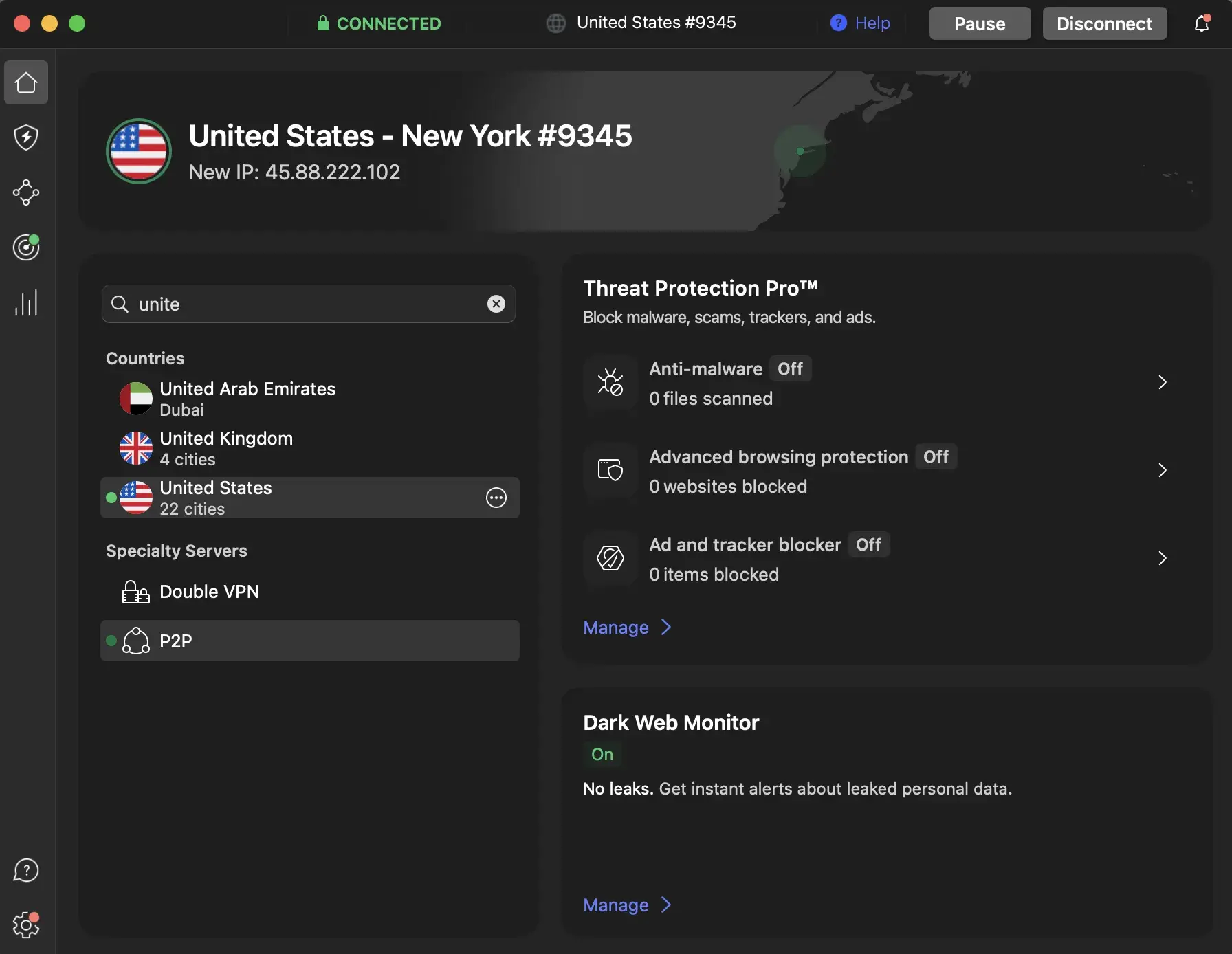
In my real-world tests (gigabit fiber, Europe, North America, even Asia), NordVPN consistently delivered 900+ Mbps on local servers, and rarely dipped below 700 Mbps—even when bouncing traffic across continents. If you’re into 4K streaming, cloud backups, or gaming, this matters. You just set it and forget it.
FastestVPN honestly has a cool brand name. They support WireGuard, OpenVPN, and IKEv2, which is promising… but implementation is everything. On a 1 Gbps line, I saw 10–15% speed drops on nearby servers (Europe), but distant servers (US West, Singapore) often lost 60–70% of bandwidth.
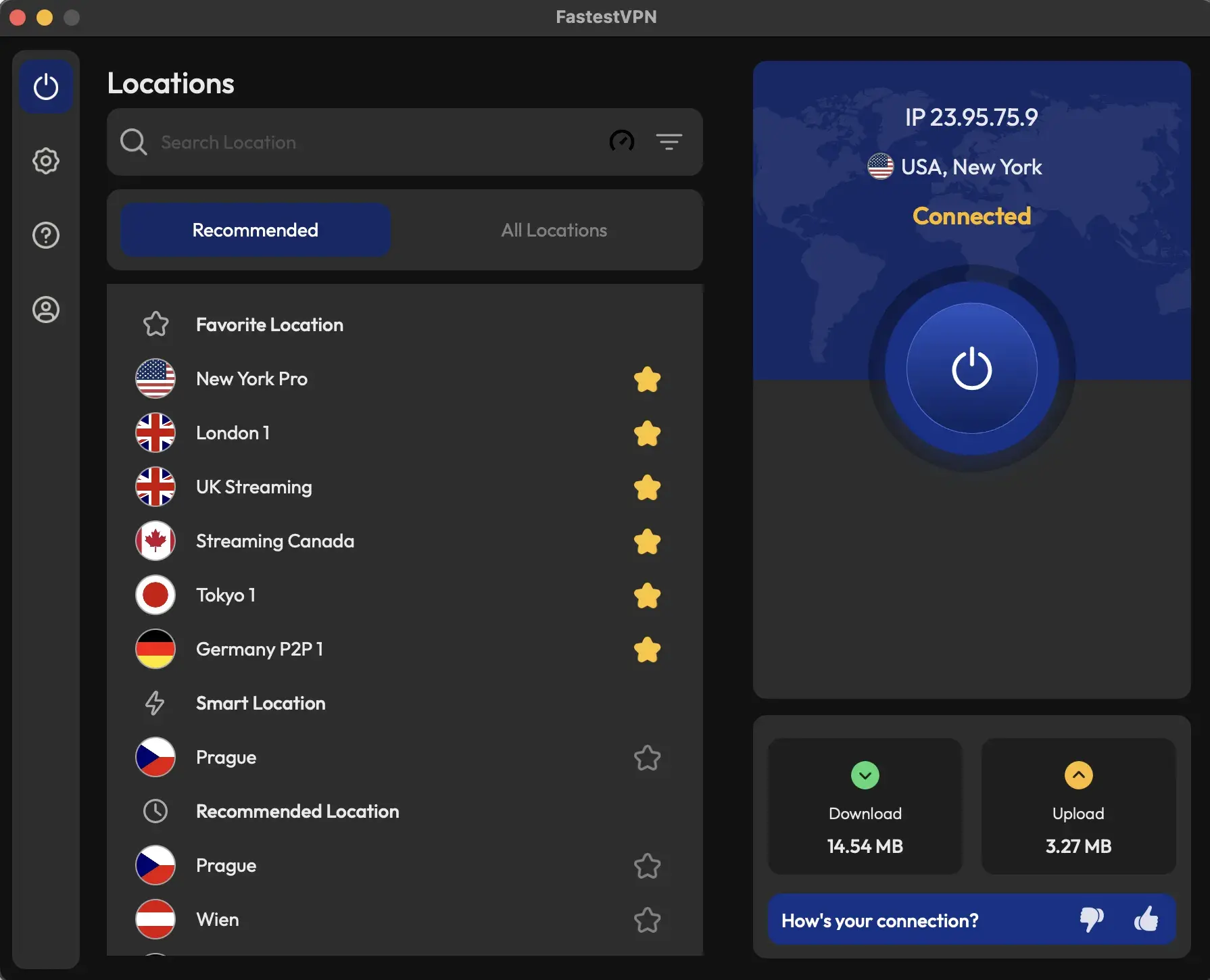
For casual browsing or the odd Google search, fine. For streaming, large downloads, or uploading your holiday photos, it quickly gets old.
Real-world tip: If you’re hoping to use a VPN for cloud work, heavy uploads, or online gaming, NordVPN is easily the better choice. FastestVPN works for quick, basic tasks—but not if you value your time.
2. Security, Privacy & Audits: Who Really Has Your Back?
Encryption: The Minimum Standard Isn’t Enough
Both NordVPN and FastestVPN use AES-256 encryption. This is the gold standard—military-grade, used by governments. But real privacy goes much deeper.
NordVPN layers on security extras:
- Threat Protection Pro: Blocks malware, trackers, and ads—even when your VPN is off.
- Double VPN and Onion Over VPN: Route traffic through two servers or over the Tor network for maximum anonymity.
- RAM-only servers: Every time a server reboots, all data is wiped. No logs, no leaks, no trace.
FastestVPN does include a kill switch, ad blocker, malware protection, and NAT firewall. That’s a solid toolkit for hotel Wi-Fi or public hotspots. But there’s no equivalent to NordVPN’s advanced privacy features.
Auditing: Transparency Makes All the Difference
This is where the gap gets wide.
NordVPN has passed five independent, world-class security audits (PricewaterhouseCoopers, Deloitte). Every claim—no logs, server security, transparency—has been picked apart by professionals, with the reports to prove it.
FastestVPN underwent a single audit (Altius IT). Better than nothing, but the company is smaller and the process less transparent. There’s no RAM-only infrastructure or repeat scrutiny. If you care about real, battle-tested privacy, that matters.
Personal note: I trust VPNs that open their doors to the “Big Four” auditors—and NordVPN is one of the very few that do this, over and over. FastestVPN’s audit is a nice start, but it’s not the same league.
3. No-Logs Policy & Jurisdiction: Can You Trust Them When It Matters?
Where Are These VPNs Based?
Both providers live outside the prying eyes of Five/Nine/Fourteen Eyes data-sharing alliances. NordVPN is based in Panama, a privacy haven with no data retention laws. FastestVPN is incorporated in the Cayman Islands—also favorable for privacy, and likewise not a member of surveillance groups.
Logging Policies: Trust, But Verify
- NordVPN has a strict no-logs policy, enforced with RAM-only servers, and checked multiple times by the biggest auditing firms on earth.
- FastestVPN claims a no-logs approach, which was checked in a one-off audit, but there’s less public detail, and it’s unclear if they use RAM-only tech.
Payment Anonymity
Both services accept cryptocurrency, so if you want to stay totally anonymous, you can sign up and pay without ever using your real identity.
4. Server Network: Size, Specialization & What It Means for You
Not All Server Networks Are Equal
NordVPN has built a massive network—over 8,100 servers in 126 countries. No matter where you are, you’ll find a fast, local server. They offer specialized servers for:
- P2P (torrenting)
- Obfuscated servers (for breaking through censorship)
- Double VPN, Onion Over VPN
- Dedicated IP addresses (for business, secure access, etc.)
FastestVPN manages a more modest network: about 800+ servers across 49+ countries. They support P2P, and offer dedicated IP and port forwarding (for an extra fee), but lack the breadth of advanced, specialized server types that NordVPN brings to the table.
Bottom line: More servers = less congestion, better speeds, and more options for unblocking content.
5. Streaming, Unblocking, and Real-World Use: Who Wins the Content Wars?
Streaming: The True VPN Stress Test
Let’s not kid ourselves—one of the main reasons most people want a VPN is to stream content that’s geo-blocked. Netflix US, BBC iPlayer, Hulu, Disney+, sports events that only play in one country… if your VPN can’t deliver here, all those claims about “internet freedom” fall apart.
NordVPN absolutely crushes this category. I’ve tested it with US Netflix, UK Netflix, Japan, Australia, Disney+, BBC iPlayer, Hulu, ESPN, HBO Max—you name it, it just works.
SmartPlay (Nord’s hybrid VPN/Smart DNS tech) automatically routes your traffic for the easiest possible unblocking. And because the speeds are consistently high, you can actually stream in 4K, even on far-away servers. Buffering? What’s that?
FastestVPN is… inconsistent. Some days you’ll unlock Netflix US or Disney+ and think “Hey, maybe the lifetime deal is a steal!” Next week? The same server’s blacklisted, or speeds aren’t good enough for smooth HD streaming. It’s unpredictable.
For platforms with tough VPN detection (like BBC iPlayer or DAZN), FastestVPN usually strikes out. You get what you pay for.
Insider note: NordVPN is one of the only VPNs that consistently dodges Netflix’s and Disney’s anti-VPN systems over the long term. Most smaller providers get blocked sooner or later, and once you’re flagged, there’s no easy fix.
6. Usability & App Experience: Where Design Really Counts
App Design: Does It Get Out of Your Way?
You want a VPN that’s as easy to use on your phone as it is on your laptop—and one that just works, without a learning curve.
- NordVPN offers beautifully designed, fast, and stable apps for Windows, macOS, Android, iOS, and Linux. The “world map” interface is genuinely helpful for picking the fastest server. Every advanced feature (split tunneling, kill switch, Threat Protection) is easy to find and toggle. Updates come regularly, and the app feels polished on every platform.
- FastestVPN has simple, basic apps for the main platforms. They’re beginner-friendly, but more limited. Some users (and honestly, I’ve seen it myself) complain about buggy behavior—especially on Windows. Features like the kill switch must be manually enabled, and advanced controls are more limited. If you just want “set and forget” on your phone, it’s OK. Power users will feel restricted.
Device Limits: How Many Gadgets Can You Cover?
Both providers now offer up to 10 simultaneous connections per account (FastestVPN sometimes bumps it up to 15 during promotions).
That’s plenty for a household or someone with a phone, tablet, laptop, and a couple of streaming devices.
7. Customer Support: The People Behind the App
In a perfect world, you’d never need support. In the real world, you’ll have a question or a glitch at some point.
- NordVPN offers 24/7 live chat, fast email replies, a rich help center, and genuinely smart support reps. Most problems are solved in a few minutes, and the experience is consistent whether you’re a paying customer or just asking before signing up.
- FastestVPN also offers live chat and email support. Their support is fast and polite, but if you hit a more technical snag or need help with advanced features, the responses can be more generic.
On Trustpilot and user forums, both get high marks for friendly support, but NordVPN edges out with a deeper knowledge base and faster escalations for complex issues.
8. Pricing: What Are You Actually Paying For?
How the Costs Stack Up
Here’s where things get interesting. FastestVPN is famous for its ultra-cheap lifetime plan, often selling for around $40. NordVPN is more expensive—about $12.99/month if you go monthly, or down to ~$3/month if you commit to a 2-year plan (and watch for promotions).
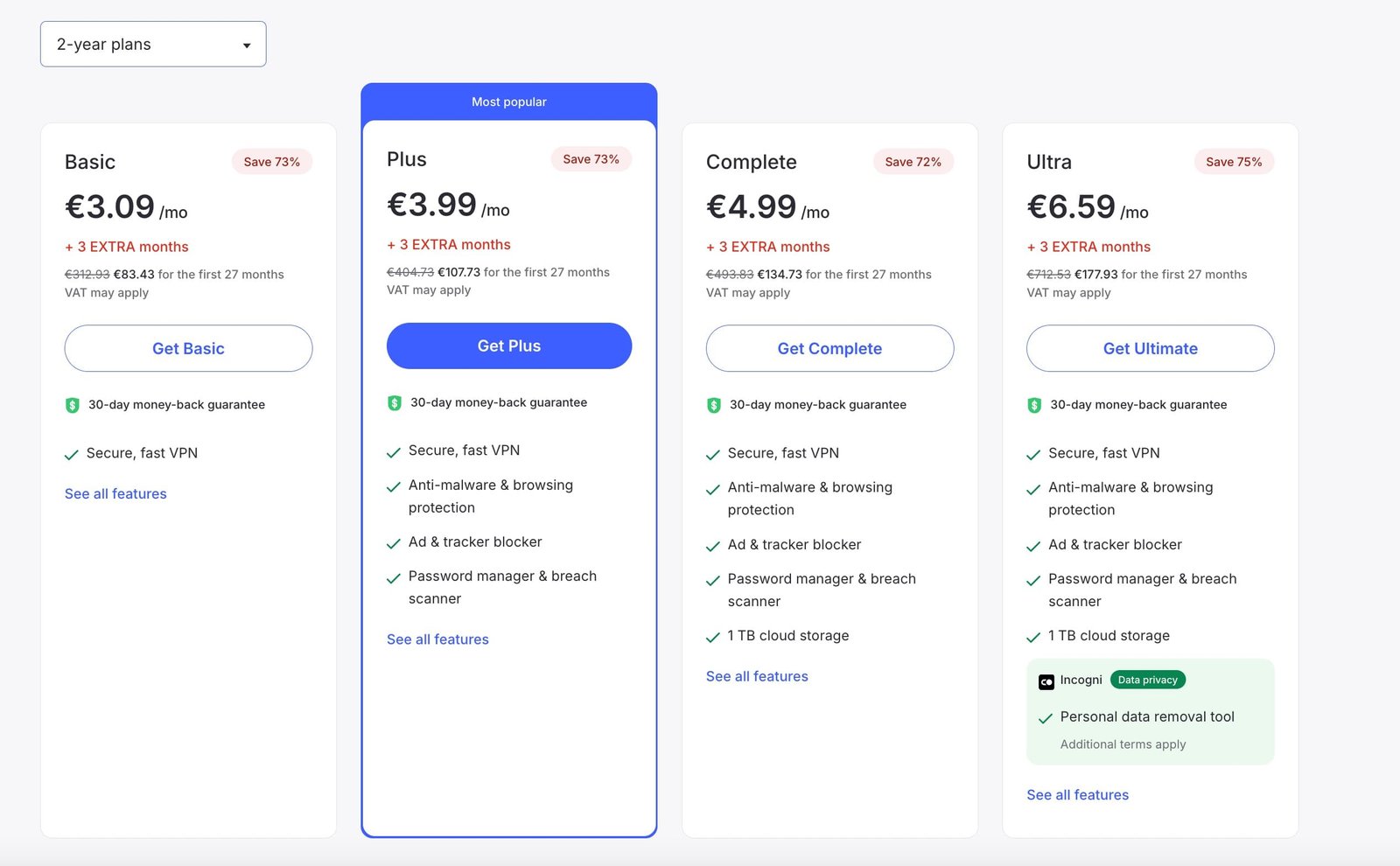
Sample price snapshot (as of September 2025):
| Plan | NordVPN | FastestVPN |
|---|---|---|
| Monthly | ~$12.99 | ~$5 |
| Annual | ~$4.99/mo ($59.88) | ~$1.66/mo ($19.95) |
| 2-Year | ~$3.09/mo ($83.43) | N/A |
| Lifetime | N/A | $40 (one-time) |
- Both accept PayPal, cards, and crypto (for anonymous sign-up).
- Both offer a money-back guarantee—30 days for NordVPN, 15 days for FastestVPN.

Is Lifetime VPN a Good Idea?
On paper, paying $40 once for “forever” VPN sounds genius. Here’s the reality:
- Small VPNs offering lifetime plans often struggle with costs, server upgrades, and long-term sustainability.
- If FastestVPN ever folds, gets bought, or simply lets server quality slide, you’re out of luck (and your $40).
- Major providers like NordVPN refuse to offer lifetime deals because they invest constantly in new servers, audits, legal defense, and feature upgrades.
My view: Lifetime VPNs are a gamble. If you want a disposable, basic VPN for light use and don’t mind potential risk, go for it. If privacy, reliability, and streaming really matter to you, it’s better to pay for a top-tier VPN with a proven track record.
9. Value for Money: What’s “Worth It” for Different Users?
Best for Power Users, Streamers, Travelers, or Anyone Who Values Privacy
NordVPN is worth the investment. The combination of speed, privacy, streaming, and reliability is unmatched for the price, especially on longer plans.
Best for Bargain Hunters or Minimal Needs
FastestVPN’s lifetime deal is the absolute king of cheap. It’ll cover basic browsing, public Wi-Fi protection, and occasional streaming (if you don’t mind trying a few servers).
10. Verdict: Which VPN Wins—And Who Should Actually Choose FastestVPN?
Let’s cut through the marketing and get to the point: NordVPN and FastestVPN are not aiming at the same audience. That’s not just about price—it’s about expectations, reliability, and how much you actually care about your digital life.
NordVPN: For People Who Want “Set It and Forget It” Security
Who is it for?
- People who stream a lot, work remotely, or travel and need to access services worldwide
- Anyone who hates buffering and wants 4K streaming to “just work”
- Privacy-conscious users who care about real audits, no-logs, and “ram-only” servers
- Digital professionals, expats, journalists, or anyone for whom security and trust are non-negotiable
What stands out?
- Consistently unblocks everything—Netflix (US, UK, Japan…), BBC, DAZN, Disney+, Amazon Prime, and even niche streaming apps
- One of the fastest protocols on the market (NordLynx), with rock-solid speeds even for gaming or big uploads
- Best-in-class privacy (multiple audits, Panama HQ, RAM-only infrastructure, tons of advanced features)
- User experience is simple for beginners, powerful for geeks—rare in the VPN world
Downsides?
- Higher price if you pay month-to-month (but two-year deals are some of the best value in the industry)
- You’ll need to actually cancel if you decide you’re done—auto-renewal is the norm
FastestVPN: For Bargain Hunters, Light Users & VPN Skeptics
Who is it for?
- People on a strict budget, or who want a backup VPN for coffee shop Wi-Fi, hotel stays, or occasional privacy
- Users who just want to hide their IP and don’t care about streaming, speed, or next-level features
- Families or small teams who want the most connections for the least money (10–15 devices!)
What stands out?
- Lifetime plan is ridiculously cheap, with no ongoing fees
- Decent security basics (kill switch, ad block, basic audit, Cayman Islands HQ)
- Simple setup, works for “set and forget” basic browsing, and okay as a secondary VPN
Downsides?
- Unreliable streaming; may work with Netflix US or Disney+ some days, but expect frequent “proxy error” screens
- Speed drops on distant servers are real, so global work or heavy streaming isn’t fun
- Smaller company, one-time audit, uncertain future—don’t rely on it for mission-critical privacy
Unexpected Insights: What Actually Surprised Me Testing Both
- NordVPN’s Threat Protection works even when the VPN tunnel is off. This is a lifesaver for blocking malware and sketchy sites, especially for parents or less tech-savvy users.
- FastestVPN’s Windows app is basic and can feel buggy. If your work relies on stability, invest in better software.
- Not all “no-logs” claims are equal. Always check who did the audit and how often it’s updated.
- RAM-only servers = true privacy. If privacy is non-negotiable for you (activists, whistleblowers, journalists), this feature is a must-have.
11. Final Recommendation: Which One Should YOU Get?
If you want the best mix of privacy, performance, reliability, and streaming, NordVPN is the clear winner.
Yes, it’s pricier than the bargain-bin options, but the difference in experience is night and day. If you work remotely, travel, need reliable streaming, or care about real digital privacy—don’t cheap out.
If your budget is ultra-tight, your needs are minimal, or you just want a throwaway VPN for light tasks, FastestVPN’s lifetime deal is a fun gamble.
Just keep expectations realistic: it’s no match for premium brands when it comes to consistency or long-term trust.
How to Get the Most Out of Either VPN
- Always use the latest app versions for security updates.
- Test multiple servers (especially for streaming), as availability can change.
- Enable kill switch and leak protection for max privacy.
- If you travel, save “obfuscated” or “stealth” servers in NordVPN for tough countries.
- Pay with crypto if you care about anonymity (both providers allow it).
TL;DR: The Honest Summary
- NordVPN = Best-in-class for speed, privacy, streaming, family use, and travel. Worth the money, especially on long-term plans.
- FastestVPN = Cheap, simple, and “good enough” for light, non-critical use. Great backup or entry point into VPNs, but not a primary tool for power users.
Choose based on your real needs and tolerance for risk—there’s no single “best,” but there’s definitely a right VPN for every person.
And if you want a setup that just works everywhere, every time? NordVPN is my pick.
FAQs & Pro Tips: The Stuff Nobody Else Tells You
What Happens if My Lifetime VPN Shuts Down?
That $40 lifetime deal is only as good as the company’s survival.
If FastestVPN is sold, rebranded, or can’t pay for server upgrades, your account may disappear, or service will get worse. Always have a backup plan—especially if you use VPNs for privacy or business.
Does Either VPN Work in Censored Countries (China, Russia, UAE, etc.)?
NordVPN is a favorite among travelers in China, Turkey, Russia, the UAE, and Iran. Their obfuscated servers are designed to bypass firewalls and deep packet inspection.
FastestVPN doesn’t have dedicated obfuscation; it might work, but don’t count on it in tough censorship environments
Which Is More Family-Friendly?
Both support at least 10 devices, which is enough for most families—kids’ tablets, smart TVs, laptops, phones, you name it. NordVPN’s parental controls and better streaming reliability make it a more complete solution for families who care about safe internet and kids’ YouTube habits.
How Easy Is Cancellation and Refund?
NordVPN: 30-day money-back guarantee, no questions asked, whether you pay monthly or commit long-term. Refunds are fast and reliable.
FastestVPN: 15-day guarantee; some users report extra steps, but generally you get your money back if you ask within the window.
Any Real Reasons to Use Both?
Absolutely! Many power users stack VPNs: one premium (like NordVPN) for streaming, privacy, and travel—and a cheap lifetime one (like FastestVPN) as a backup, for untrusted Wi-Fi or when sharing access with a group.







